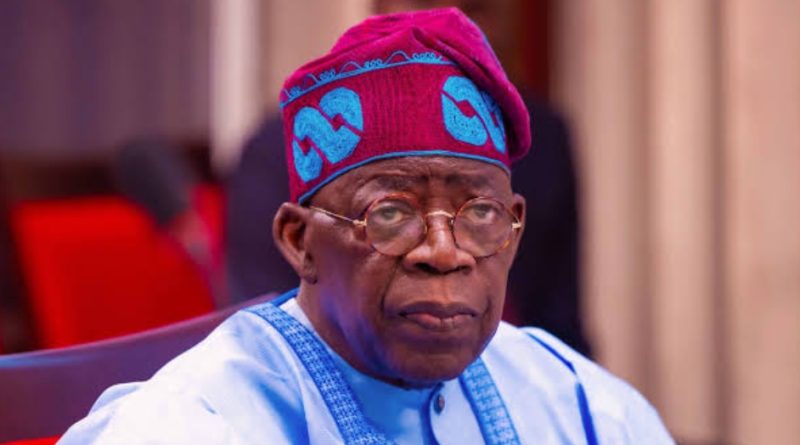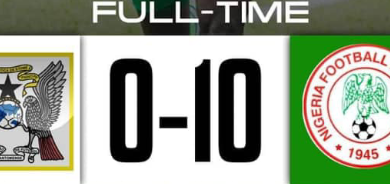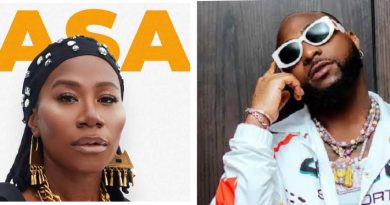SPORTS: One year of booms, successes
Emmanuel Onwubiko
May 29th, 2024, will mark exactly one year that President Bola Ahmed Tinubu’s administration came to power. The president didn’t waste as much time in office before he picked his federal executive council made up of ministers as stipulated by the Grund NORM.
As preparations are in top gear to commemorate this one year anniversary, citizens and groups are about now making their assessments and assigning scores to the administration based on the performance or lack of it in the diverse sectors of the economy.
In making these assessments, citizens seem to have reached a unanimity of positive position that in the key area of sports development, that President Tinubu has scored a very excellent mark due to the top quality of the person he picked as the Sports development minister.
This consensus is drawn up largely because in recent times, Nigerian sports have witnessed an unprecedented surge in achievements and qualifications for major international events, notably the upcoming 2024 Paris Olympics. This period of remarkable success can be attributed to the strategic leadership and policy direction implemented by the Federal Ministry of Sports, under the guidance of Senator John Owan Enoh.
His tenure, characterized by a quiet but effective approach, has been instrumental in fostering stability, attracting private-sector investment, and positioning sports as a significant sector for employment and revenue generation. As Nigeria celebrates the qualification of numerous athletes for the Olympics, it becomes evident that sustained and upgraded government support can transform the nation into a global sports powerhouse.
The journey to Olympic qualification is arduous, demanding, and highly competitive. For many athletes, especially those groomed domestically, qualifying for the Olympics is akin to reaching the pinnacle of their careers, comparable to qualifying for the Senior World Cup in football. This year, Nigeria boasts a commendable list of athletes who have secured their spots for Paris 2024 across various sports, demonstrating the country’s growing prowess on the global stage.
Athletics has always been a strong suit for Nigeria, and the qualification of three athletes in this category is a testament to the country’s enduring legacy in track and field. Tobi Amusan, a world-renowned sprinter, has not only qualified but also set a new world record in the women’s 100m hurdles with a time of 12.40 seconds. This remarkable feat cements her status as the world’s fastest woman in this event. Alongside Amusan, Ezekiel Nathanial (Men’s 400m) and Edose Egbadi (Men’s 800m) have also qualified, showcasing Nigeria’s depth in talent and competitive spirit.
Nigeria’s boxing contingent for the Paris Olympics includes Olaitan Olaore (Men’s 92kg), Dalapo Omole (Men’s 57kg), and Cynthia Ogunsimilore (Women’s 60kg). These athletes have demonstrated exceptional skill and determination, earning their places through rigorous qualifiers. Their participation highlights the resurgence of boxing in Nigeria, driven by improved training facilities and support.
In canoeing, Ayomide Bello (Women’s C2 500m) and Beauty Etuku (Women’s C1 200m) have made significant strides. Their qualification underscores the growing interest and investment in water sports in Nigeria, a sector previously underrepresented on the international stage.
Wrestling continues to be a stronghold for Nigeria, with Odunayo Adegoroye (Women’s freestyle, 57 kg) leading the charge. Her qualification reaffirms Nigeria’s dominance in this sport, thanks to sustained grassroots development and international exposure.
The women’s basketball team and the Super Falcons (women’s football team) have both qualified, adding to Nigeria’s robust representation in team sports. The Super Falcons, in particular, broke a 16-year-old jinx by qualifying for the Olympics, highlighting their resilience and skill.
Additional qualifications include participation in badminton, rowing, swimming, taekwondo, table tennis, and weightlifting. These athletes, though less publicized, are crucial to Nigeria’s comprehensive representation in diverse sports disciplines.
These recent success stories of Nigerian sports cannot be told without acknowledging the pivotal role of Senator John Owan Enoh. His leadership has been marked by a focus on stability, policy direction, and behind-the-scenes efforts to institutionalize and professionalize the sports industry. Unlike many public figures who seek visibility and personal acclaim, Enoh has chosen a path of quiet but effective governance, ensuring that the foundations of Nigerian sports are strengthened for long-term success.
Under Enoh’s tenure, the Ministry of Sports has implemented policies aimed at providing stable and consistent support for athletes and sports federations. This includes financial backing, infrastructure development, and international exposure. The strategic focus on stability has allowed athletes to train and compete with the confidence that they have the support of their government, which is crucial for high performance.
One of Enoh’s significant achievements has been his ability to attract private sector investment into the sports industry. By creating a conducive environment for businesses to invest in sports, he has opened new avenues for funding and development. This partnership has not only provided financial resources but also introduced professional management and global best practices into Nigerian sports.
Enoh’s efforts to institutionalize sports in Nigeria involve creating robust structures and systems that ensure sustainability. This includes establishing training academies, improving sports facilities, and fostering a culture of excellence. By focusing on long-term goals rather than short-term wins, Enoh has set the stage for continuous improvement and success in Nigerian sports.
The past year under President Tinubu’s administration has seen significant government support for sports, leading to a boom in achievements and prospects. This support ranges from financial aid to policy reforms aimed at enhancing the sports sector’s contribution to national development.
President Bola Tinubu’s strides in sports development within his first year in office have been significant for Nigeria, as noted by various stakeholders in the Lagos sports community. According to Dehinde Ogunbiyi, a member of the Lagos State Basketball Association, Tinubu’s pro-sports policies have been inspiring and indicative of better days ahead for the sector. Tinubu has recognized and awarded Nigeria’s representatives at global sports competitions, such as the silver-winning team at the African Cup of Nations (AFCON) and medal winners at the 13th All Africa Games in Ghana.
Ogunbiyi emphasized the importance of government encouragement of private sector investment in sports, suggesting that there should be a synergy between the private sector and government to handle sporting activities, with the government stepping back from direct sponsorship.
Philip Braide, an ex-basketball player and grassroots basketball development stakeholder, praised the Federal Government’s support for sports, particularly noting the timely release of funds for national teams. This financial support has enhanced athletes’ performance, as evidenced by Nigeria’s success in the 2023 AFCON and the Nation’s Cup in basketball.
Femi Arigbagbu, a sports management stakeholder, highlighted the presidency’s commitment to boosting sports through the Renewed Hope Agenda, which includes initiatives like signing Memoranda of Understanding (MOUs) with private companies to relaunch competitions such as the Challenge Cup.
Charles Ezenwanne, President of the Para Powerlifting Federation, and Folashade Oluwafemiayo, the Captain of the Para Powerlifting team, also commended the administration for its proactive support, which has allowed for better preparation and performance in international tournaments.
The sports industry holds immense potential as a major employer of labor and a significant source of revenue for Nigeria. By nurturing talent and creating professional opportunities within the sports ecosystem, Nigeria can tap into a lucrative market that contributes to economic growth. Enoh’s initiatives have laid the groundwork for this transformation, positioning sports as a viable career path and an attractive investment option.
To sustain the current momentum, it is essential to continue and expand the policies and initiatives introduced by Enoh. This includes maintaining government support, fostering private-sector partnerships, and ensuring that the institutional structures remain robust and adaptive to changing dynamics. With sustained effort, Nigeria can look forward to not only participating in international competitions but also excelling and dominating in various sports disciplines.
In conclusion, the recent qualifications of Nigerian athletes for the 2024 Paris Olympics signify a golden era for Nigerian sports, driven by strategic leadership, effective policy direction, and substantial government support. Senator John Owan Enoh’s quiet but impactful governance has been instrumental in achieving these milestones, setting a precedent for future success. The Super Eagles now have a new coach in Finidi George an acclaimed footballing legend. Super Eagles did so well in the just ended AFCON and nearly won the gold but ended up with a shiny Silver medal in a grueling finals between the host nation Ivory coach and Nigeria’s super Eagles. Nigeria is not doing badly in basketball just as we are excelling in table tennis.
As Nigeria continues to invest in its sports industry, there is every indication that the nation is on the path to becoming a global sports giant. The achievements of Nigerian athletes, coupled with strategic initiatives, present a compelling case for the transformative power of well-directed support and investment in sports.
We at the Human Rights Writers Association of Nigeria whilst wishing the minister of sports development the very best, we advocate that President Tinubu should keep up his passionate love of sports development. The government’s decision to reward the Super Eagles that did well at the last AFCON with national honours and houses, is remarkable and commendable.
Emmanuel Onwubiko is head of the HUMAN RIGHTS WRITERS ASSOCIATION OF NIGERIA (HURIWA) and was a NATIONAL COMMISSIONER of the NATIONAL HUMAN RIGHTS COMMISSION OF NIGERIA.




